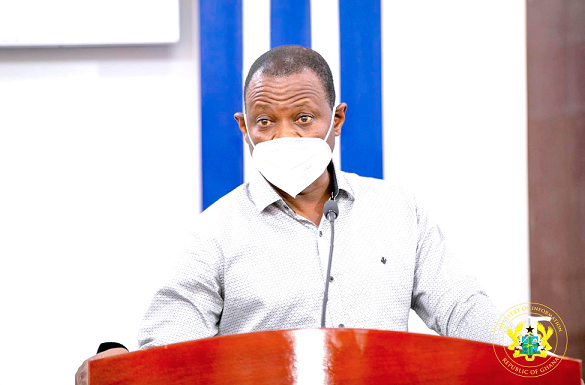The Ghana Health Service (GHS) has given an assurance that additional COVID-19 vaccines are being procured to ensure that people who have been vaccinated take the second jab as required.
The national COVID-19 vaccination programme started on March 2, 2021, with the pledge that the GHS will administer the second jab between eight and 12 weeks after the first jab.
People are, however, becoming anxious that due to global vaccine equity challenges, the country may not be able to provide the second jab within the stipulated time.
But addressing the Minister’s press briefing series in Accra yesterday, the Director-General of the GHS, Dr Patrick Kuma-Aboagye, said the public should not panic, as efforts were being made to bring in more of the vaccines.
He said research had shown that the first dose provided protection even over the 12-week stipulated period.
“We are assuring people that if you don’t get the second jab in eight weeks, there is nothing wrong. We still have a four-week window. We have some assurances from COVAX that by May, we would get more vaccines.
“We are aware that the Presidency is also working hard to bring in more of the vaccines; we assure you that we will deliver,” the Director-General added.
Dr Kuma-Aboagye further said studies had shown that the efficacy of one dose of AstraZeneca provided 76 per cent protection for about 90 days, which coincided with the 12-week period.
He, however, said more studies were being conducted to determine when a person became vulnerable beyond the 12-week period of not getting the second jab.
Commitment
Dr Kuma-Aboagye said his outfit was committed to getting enough vaccines to vaccinate the 20 million people it had targeted by the close of the year.
So far, he said, from the 966,850 vaccines received, more than 800,000 people had been vaccinated since March 2, 2020.
He said they also had in stock 16,000 doses of the Sputnik-V vaccine which was received on March 3, 2021 but which were yet to be administered.
Dr Kuma-Aboagye said 580 doses of the AstraZeneca vaccines, representing two per cent, had so far gone waste due to “circumstances beyond our control”.
“Recently, there were reports of thousands of vaccines getting expired in some regions, but the truth of the matter is that 315,000 of the vaccines received from MTN Africa were to expire on April 13, 2021, so we offloaded them and started distributing them on Good Friday to ensure they were administered before the expiry date.
“All the regions received some of the vaccines and were able to use them, except for some 480 doses that could not be used in the Northern Region and 100 in the Oti Region. This is quite low, looking at the time the vaccines arrived,” he said.
Overview
Providing an overview of the national COVID-19 situation, Dr Kuma-Aboagye said Ghana had experienced two waves of the pandemic, with the second being bigger and severer.
“We have seen a significant decline in cases in mid-February from 8,000 to less than a 1,500 currently. As of April 15, 2020, Ghana had recorded 91,709 cases, 89,604 discharges and recoveries and 771 deaths,” he said.
He said since the reopening of schools, 345 schools had recorded cases among pupils and students, with a total case count of 2,052 and current active case of 13.

